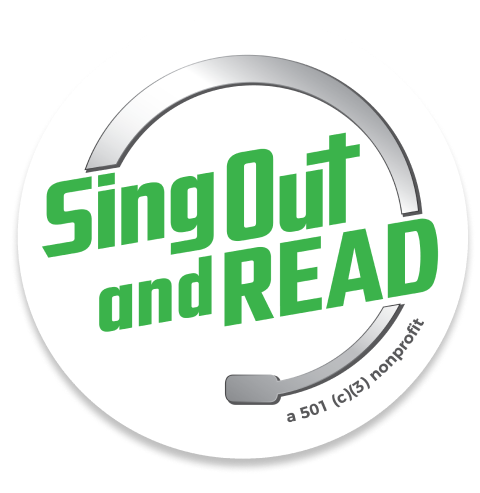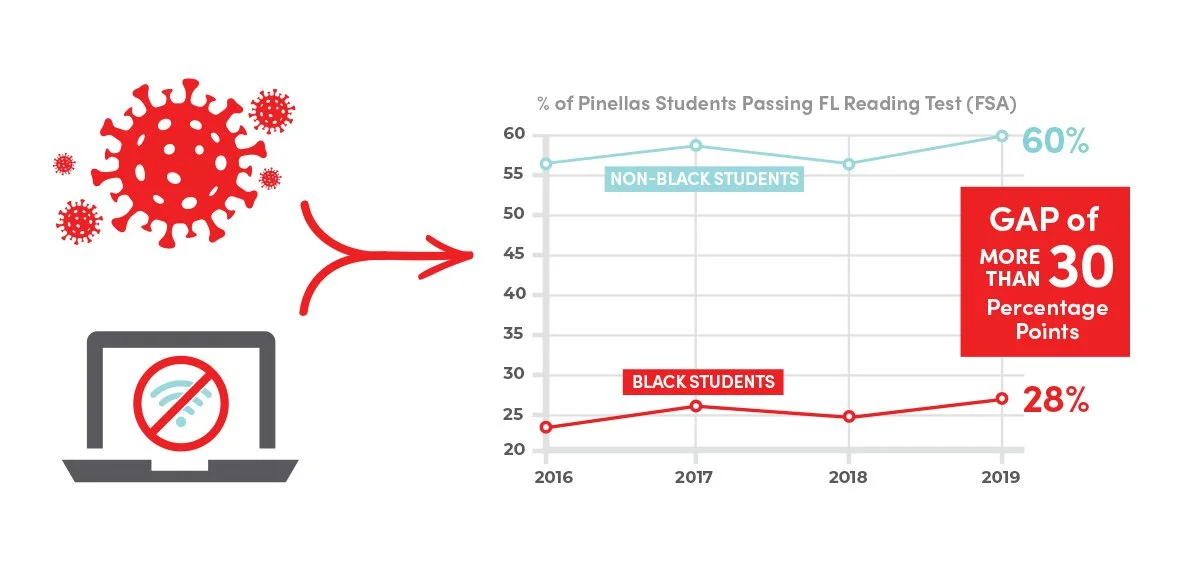Responding to Today’s Triple Challenge of Learning Disparities
This Fall, our at-risk communities are faced with a tripled burden of learning disparities.This Fall, our at-risk communities are faced with a tripled burden of learning disparities. Many elementary school children will be learning remotely (and experiencing the COVID Slide); further hampered by the lack of up to date devices and reliable internet (the Digital Divide); while starting from a significant deficit as a result of the generational cycle of poverty (the decades old Achievement Gap).
Fortunately, there is a literacy tool that has demonstrated its effectiveness before and during the current pandemic: Sing Out and READ's Family Literacy Project (FLiP). Families that participate in our FLiP program report significant gains in reading despite all the challenges of these extraordinary times.
Last summer, newly launched non-profit Sing Out and READ welcomed its first cohort of Family Literacy Project (FLiP) participants. The FLiP program was developed to work with at-risk kids in their homes using our program-loaded tablets. The tablets were provided complete with cellular service, a headset, charger and protective carrying case. We were thrilled to find an excellent program completion rate, with the majority of kids completing 2-3 times the number of requested program minutes and, as with our after-school facilities, these kids went up 1+ reading grade levels in 3 months time. Now, over 200 struggling readers have used the FLiP program successfully. Sing Out and READ's FLiP program would appear to be custom-made for the difficult learning environment at-risk families now find themselves in.
The literacy challenge and FLiP’s targeted solution:
THE COVID SLIDEAs schools were forced to shut down last Spring, black elementary students already struggling with reading and, therefore, many subjects found distance learning to be an even tougher road. Through no fault of the schools, their teachers and curriculum had to turn on a dime and immediately shift to providing online instruction. Students faced assorted learning difficulties and many fell further behind. Working with FLiP, at-risk kids were able to independently and comfortably make reading progress in their homes. Sing Out and READ, with increased funding, could provide the FLiP tablet program to many more needy at-home learners this Fall.
THE DIGITAL DIVIDEToday’s computers age out at an ever faster rate, leaving behind those unable to afford upgraded equipment. Additionally, internet access is often unreliable in disadvantaged communities. Sing Out and READ is able to provide current tablets uploaded with the reading program, along with cellular connection free to at-risk families. FLiP kids enjoy uninterrupted access to their reading lessons and make swift progress. Having successfully completed the 3-month program term, each child is rewarded with their very own new tablet.
THE ACHIEVEMENT GAPIn the US, 83% of low-income students are currently not proficient in reading by the end of 3rd grade, as compared to 55% of moderate to high-income students. That difference of approximately 30 percentage points, the Achievement Gap, has not changed in four decades. If a child starts a new grade already reading 1-2 grade levels behind, it would seem almost impossible to catch up let alone be able to switch over from learning to read to reading to learn. Yet, the most remarkable thing about using the Sing out and READ program, is how fast the reading gains come. At-risk kids are able to gain 1+ reading grade levels in just 3 months. Singing is the powerful tool, accessing both sides of the brain, that makes these speedy gains possible.
There is no magic bullet to conquer illiteracy, as not all children learn the same way. Yet, as literacy research professor Dr. Susan Homan stated having studied the effects of Sing Out and READ’s program, "I’ve never seen any program work as well for as many kids as this one."
We at Sing Out and READ look forward to serving as many at-risk readers as possible during this challenging time.

